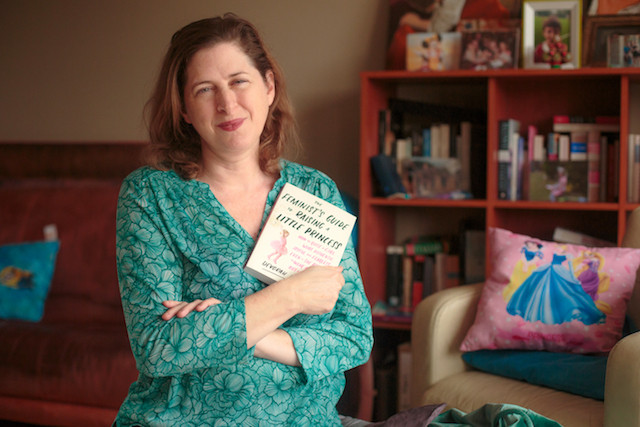New Yorker Devorah Blachor was flummoxed when her young daughter became obsessed with everything princess and pink. “I’d raised her in a gender-neutral environment and I wasn’t open to the princess culture,” she recalls.
The tension between Blachor’s expectations and her daughter’s behaviour led to her publishing a satirical essay in the New York Times entitled Turn your princess-obsessed toddler into a feminist in eight easy steps. It went viral.
In 2015, Blachor moved to Luxembourg and got a book deal. She spent much of her time in Franky’s café in Bertrange drafting “The feminist’s guide to raising a little princess”.
Blachor’s main concern with her daughter’s sudden disappearance “down the Disney rabbit hole”, as she calls it, was that the princess obsession would have a negative impact. She couldn’t find a study showing a negative relationship between the princess culture, which took off in 2000, and its impact on adolescent self-esteem and body image on the early guinea pigs of Disney’s marketing push, who would now be in high school or university, so she conducted her own survey.
“Most respondents were interesting, engaged women despite their childhood princess obsessions. It countered my expectations and really changed my mind about it,” she says. “It also helped me to understand that our children differ from our expectations and if we accept them as they are, our lives flow better than if we resist,” she explains, although she still promotes a feminist agenda: “I want my daughter to express herself, not let other people tell her that her voice doesn’t matter, speak up, and not aim simply to please others at her own expense. All too often girls are taught to be the caretakers and sacrifice their own needs.”
The book, available on all Amazon websites, combines research findings with personal essays written in a satirical style. In one chapter, Blachor recalls the first princess item to enter the house, which turned her into the Evil Queen plotting against it. “It’s a chapter about giving up control and letting go,” she says. She has also rewritten early fairytales in a cartoon segment entitled “A femtastic fairy godmother”.
Blachor began her career as a documentary film maker and news journalist but discovered satirical writing after the birth of her children. “It was an outlet to laugh about motherhood,” she says. Today, she regularly pens essays on politics, parenting and feminism as well as humorous pieces for the Washington Post, McSweeney’s and The Forward.
“I’m grateful to be in Luxembourg. It’s a safe place to raise my kids and an amazing opportunity for us to explore Europe,” she says.
This article originally appeared in the Delano February 2018 print edition.
